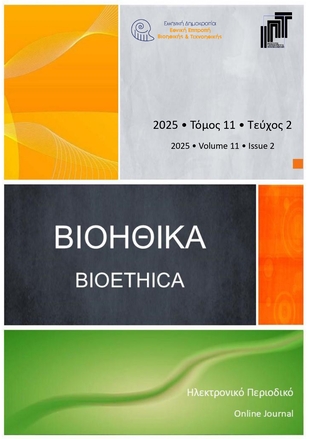Cross-Species Boundaries and Human Rights: Legal and Ethical Reflections on Xenotransplantation
Аннотация
Xenotransplantation, i.e. the transplantation of cells, tissues, or organs derived from animals into humans—stands at the forefront of biomedical innovation, offering a promising solution to the persistent shortage of human donor organs. As this field advances rapidly, it simultaneously raises complex scientific, ethical, and legal challenges that demand careful consideration. The responsibility to safeguard animal welfare while ensuring human health protection is paramount, particularly given the zoonotic risks inherent in xenotransplantation research. Preclinical studies must rigorously address the potential for transmission of infectious agents from animals to humans, requiring robust risk assessment and management strategies that protect not only individual patients but also public health at large. Balancing these concerns with the imperative to develop life-saving therapies underscores the vital role of scientific responsibility.
Ethical questions surrounding xenotransplantation go beyond traditional biomedical concerns, probing deeply into the boundaries between species and what it means to be human. The creation and use of chimeras and hybrids challenge established concepts of identity, raising questions about the moral status of these entities and the ethical limits of scientific intervention. Patient rights remain central in this discourse, especially regarding informed consent, compassionate use of experimental treatments, and the equitable distribution of scarce organs. These issues compel ongoing reflection on autonomy, justice, and societal values, highlighting the need for ethical frameworks that can guide clinical practice and research in this emerging field.
At the same time, xenotransplantation operates within a diverse and evolving global legal landscape. Regulatory frameworks vary considerably across countries, reflecting different cultural, ethical, and political priorities. International organizations such as the International Xenotransplantation Association (IXA) and the World Health Organization (WHO) play critical roles in shaping policies, offering guidance, and promoting harmonization to facilitate responsible development and safe clinical application. Navigating this complex regulatory environment is essential for researchers and clinicians, who must comply with multifaceted requirements to ensure the ethical conduct of clinical trials and patient safety.
This article integrates scientific, ethical, and legal perspectives to provide a comprehensive overview of the current state and future prospects of xenotransplantation. It emphasizes the importance of an interdisciplinary approach that promotes innovation while rigorously addressing risks and respecting both animal welfare and human dignity. By fostering collaboration among scientists, ethicists, policymakers, and healthcare providers, the xenotransplantation field can advance responsibly, ultimately transforming the landscape of transplantation medicine and offering new hope to patients facing organ failure worldwide.
Article Details
- Как цитировать
-
Baldussu, S. (2025). Cross-Species Boundaries and Human Rights: Legal and Ethical Reflections on Xenotransplantation. Bioethica, 11(2), 74–92. https://doi.org/10.12681/bioeth.42845
- Выпуск
- Том 11 № 2 (2025): Bioethica
- Раздел
- Reviews

Это произведение доступно по лицензии Creative Commons «Attribution» («Атрибуция») 4.0 Всемирная.
Authors who publish with this journal agree to the following terms:
- Authors retain copyright and grant the journal right of first publication with the work simultaneously licensed under a Creative Commons Attribution CC BY 4.0 License, which allows for immediate free access to the work and permits any user to read, download, copy, distribute, print, search, or link to the full texts of articles, crawl them for indexing, pass them as data to software, or use them for any other lawful purpose. Appropriate credit must be given by citing the author(s) and the original publication in this journal.
- Authors are able to enter into separate, additional contractual arrangements for the non-exclusive distribution of the journal's published version of the work (e.g. post it to an institutional repository or publish it in a book), with an acknowledgement of its initial publication in this journal.
We encourage authors to deposit their articles, as well as data underlying the publications, in institutional and/or other appropriate subject repositories.
Bioethica permits and encourages authors to archive the final publication pdf in institutional (e.g. the repository of the National Hellenic Research Foundation) or other appropriate subject repositories (e.g. SSOAR repository for social sciences), in compliance with institutional and/or funder open access policies, after publication in the BIOETHICA. Authors must provide bibliographic details that credit publication in the journal, as well as related funding details (when applicable).
Lists of institutional and other subject-based academic open access repositories can be found listed by country at the registry http://opendoar.org/countrylist.php
If your institution does not possess a repository you may deposit a copy of your paper at no cost with www.zenodo.org , the repository supported for open access research in the EU by the European Commission, through the project OpenAIRE (www.openaire.eu )



